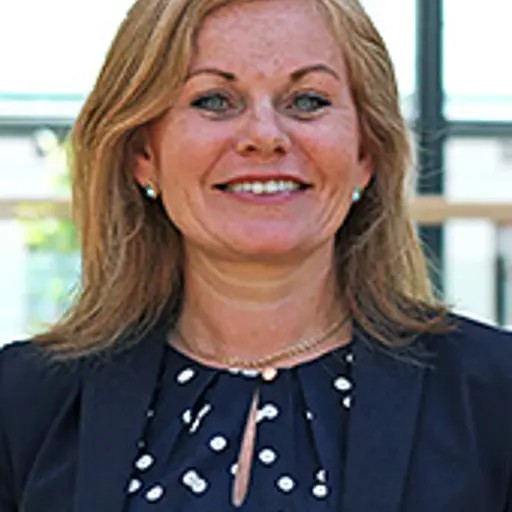Course syllabus adopted 2024-01-31 by Vice President (or corresponding).
Overview
- Swedish nameExamensarbete vid Teknikens ekonomi och organisation
- CodeTEKX01
- Credits15 Credits
- OwnerTIEPL
- Education cycleFirst-cycle
- Main field of studyIndustrial Engineering and Management, Mechanical Engineering, Industrial Design Engineering
- DepartmentTECHNOLOGY MANAGEMENT AND ECONOMICS
- GradingUG - Pass, Fail
Course round 1
- Teaching language Swedish
- Application code 68130
- Open for exchange studentsNo
- Only students with the course round in the programme overview.
Credit distribution
Module | Sp1 | Sp2 | Sp3 | Sp4 | Summer | Not Sp | Examination dates |
|---|---|---|---|---|---|---|---|
| 0105 Diploma thesis 15 c Grading: UG | 7.5 c | 7.5 c |
Examiner
 Susanne Kullberg
Susanne Kullberg- Lecturer, Supply and Operations Management, Technology Management and Economics
Course round 2
- Teaching language Swedish
- Application code 68125
- Open for exchange studentsNo
- Only students with the course round in the programme overview.
Credit distribution
Module | Sp1 | Sp2 | Sp3 | Sp4 | Summer | Not Sp | Examination dates |
|---|---|---|---|---|---|---|---|
| 0105 Diploma thesis 15 c Grading: UG | 7.5 c | 7.5 c |
In programmes
- TAFFS - BUSINESS DEVELOPMENT AND ENTREPRENEURSHIP, Year 3
- TIDSL - PRODUCT DESIGN ENGINEERING, Year 3
- TIEPL - INDUSTRIAL MANAGEMENT AND PRODUCTION ENGINEERING, Year 3
- TIMAL - MECHANICAL ENGINEERING, Year 3
Examiner
 Susanne Kullberg
Susanne Kullberg- Lecturer, Supply and Operations Management, Technology Management and Economics
Eligibility
General entry requirements for bachelor's level (first cycle)Specific entry requirements
The specific entry requirements are the same as for the programme the course is taken withinCourse specific prerequisites
The Degree project may be commenced after successfully passed courses of 120 hec (Higher Education Credits) within the programme. Specific courses necessary for the particular project must be passed before the work begins. The Degree project shall be approved by the programme director and the examiner before the work begins.Aim
The aim of the degree project is for the student to integrate, extend and develop their knowledge and skills within a smaller, specialized part of what has been treated in previously completed courses in the programme. The degree project also aims to provide knowledge and skills in engineering and scientific working methods and provide training in independently formulating and solving a more comprehensive engineering problem.Learning outcomes (after completion of the course the student should be able to)
Knowledge and understanding- acquire and apply advanced knowledge within the field of the engineering program, including deeper insight into current development,
- with a comprehensive view, independently and creatively, formulate and handle issues and analyze and evaluate different technical solutions.
- plan and use appropriate methods to perform tasks within given constraints,
- orally and in writing explain and discuss information, problems and solutions.
- critically and systematically use knowledge to model, simulate, predict and evaluate events on the basis of relevant information,
- critically examine, evaluate and constructively question another degree project with respect to problem, approach and results,
- within the framework of the project be able to identify issues regarding the role of technology in society, such as environmental and ethical aspects and
- demonstrate the knowledge and ability that is required to work independently as an engineer.
Content
The main part of the degree project is a project. The student chooses their own topic, usually in collaboration with a company, government agency, university or organization. To facilitate and support the degree project, information and communication skills are also included. Particular emphasis is given to practice to report one's work, both orally and by independently writing a part of an essay/report that shall be worth reading for an imaginary relevant readership.Organisation
The degree project is conducted individually or in groups of a maximum of two students. (pairs). At given times, tutorials in information and communication skills, are provided. The project is supervised at times agreed with the supervisor.Literature
Literature relevant to the degree project.Examination including compulsory elements
For the degree project to be approved, the following is required:- An approved planning report
- An approved degree project report in accordance with current standards of scientific and technical reports
- An approved presentation and defense of the degree project
- Approved opposition of another degree project
- Attendance at two other degree project presentations
The course examiner may assess individual students in other ways than what is stated above if there are special reasons for doing so, for example if a student has a decision from Chalmers about disability study support.